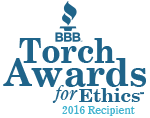Keeping your pet-sitting company’s financial records in order
By Meghann Evans | March 1, 2021

As a professional pet sitting business owner, you juggle a lot of responsibilities, and while paperwork, bookkeeping and taxes may not be the highlights of your job, they are critical components of a legitimate, successful business.
We reached out to Becky Eberly, MBA, CPB, owner of BlueStone Business Solutions, to provide some tips to help you keep your financial records in order.
Q&A with Becky Eberly
What important records should pet sitters and dog walkers be keeping throughout the year to be prepared for tax time?
Pet sitters and dog walkers need to keep track of their business-related Expenses throughout the year, as well as their Revenue, any Assets they purchase, and Liabilities they incur. Business-related expenses would include things like payments to contractors or employees who help care for pets, advertising, job supplies, and liability insurance. For revenue: Business owners need to capture their gross revenue, i.e. the money earned before credit card processing fees are withheld. If you use a payment processor like Stripe, they will withhold their fees before sending you a net deposit amount. You need to document your gross revenue as well as the credit card processing fees you paid to Stripe (expense). For Assets and Liabilities: If you purchase any office or grooming equipment for (generally) over $2,500, you should track this as a business Asset and depreciate the value of the asset over its useful life. And keep track of all business loan documents and payments, including principal and interest breakdowns.
What should pet sitters keep in mind if they’ve received some type of economic relief due to the pandemic (e.g. PPP Loans, EIDL Loans, unemployment)?
If you received a PPP Loan, be sure to complete the forgiveness application as soon as you can so your loan can be evaluated for forgiveness. If forgiven, the loan proceeds you received will be categorized as Income, but this income is non-taxable. EIDL Loans are not eligible for forgiveness at this time (however, if you received an emergency advance/grant as part of the EIDL program, that money can be forgiven). If you received Unemployment benefits, these are personal benefits and shouldn’t be documented in your business records.
What are some business tax deductions that pet sitters and dog walkers may not have thought of, and what documentation do they need to keep track of so they can take those deductions?
Business expenses include any expenses incurred in carrying on a trade or business. These expenses are deductible if they are both “ordinary and necessary” to your business. An expense is considered “ordinary” if it is common and accepted in your trade or business. An expense is considered “necessary” if it is helpful and appropriate for your trade or business. So be sure to consider the business use of your home (home office) and car (travelling to/from pet visits), any job supplies you may need to take care of the pets, as well as training and education expenses related to pet care. If you walk dogs in extreme heat or cold, you may be able to deduct the doggie sweaters or booties that the dogs need in order to be walked safely. Your poop-scoop bags are tax-deductible as are your key lockboxes or key chains to safely hold client keys. Keep receipts for any expenses you incur in case you are audited.
Because they are self-employed, how can pet sitters best determine how much of their income they should “set aside” for state and federal taxes?
A good rule of thumb is to set aside roughly 25% of your income for state and federal taxes. This amount will vary based on your individual tax situation, so it’s best to seek the advice of a tax professional for a more targeted amount. Self-employed individuals, including LLCs, should make estimated tax payments throughout the year to stay compliant and to eliminate a large tax bill at tax time.
Is there another important bookkeeping, accounting or tax tip you would like to share with pet-sitting and dog-walking business owners?
The most important rules for keeping good books and records are: 1) Do not mix business and personal expenses. Have a separate business account for your business transactions and do not pay for personal expenses from this account. Commingling of funds is not appropriate in business and could put you at risk legally and financially. 2) Use a software program to keep you organized. Find a good accounting software to track your revenue and expenses. Link your bank accounts to the software to pull in your transactions, and set up rules to automatically categorize those transactions. 3) Reconcile your accounts monthly. Make sure your accounting records match your bank statements. If they do not, you’ll need to explain this in an audit. Transactions can get duplicated and/or omitted in your accounting software, so reconciling your accounts every month will ensure your records are accurate.
If you have more questions or would like to learn more about Becky Eberly, visit www.bluestonebusiness.com.
You can also read more tax tips in this past PSI blog post, Tax Advice for Professional Pet Sitters.







Comments
Olivia Klotz